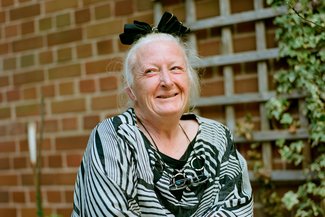
Transforming Services for Women's Futures
Our project with Changing Lives exploring how public services could be redesigned post-pandemic to better support women with multiple unmet needs.

8 Mar 2023
Observed every year on March 8th, International Women's Day is a global day celebrating the social, economic, cultural and political achievements of women, while also highlighting the work that still needs to be done to accelerate gender equality.
For women with multiple unmet needs who feel pushed out of society, the inability to access and benefit from equal opportunities can be even more pronounced, leading to further disadvantage and harm. Speaking with four women from our Transforming Services for Women’s Futures project on International Women’s Day, we learnt how their needs as women weren't considered within public services and how they find hope in women only-spaces.
Women with multiple unmet needs often face barriers when accessing services, which can limit opportunities for them to get the support they need and deserve. At their worst, public services can cause harm to women service-users by not responding to them in a gender-sensitive and responsive way. Our researchers with lived experience tell us:
Steff: The police haven’t got a clue. Say if you’re in an abusive relationship, they’ll come and take your kids. They’ll remove your kids, they’ll remove you from the home. Like, “You need to leave him, you need to go here.” There were a few times the police left me in positions where I’m lucky to be alive and it’s like you’re not doing your job properly. They’ve victim-shamed me and said, “Well, if you weren’t drunk, this might not have happened.” Don’t blame me for what happened.
Nici: I’ve experienced that in the courtroom. Because my ex was an alcoholic and he was drunk when he had the kids, I stopped him from seeing them. I said, “If you want to see them, stop drinking while they're in your care” but he still did it so we ended up going to court. They never heard me when I said that he was an abusive alcoholic, they never heard me when I told them he used to manipulate me. I told them about my mental health and how he used that against me. No one listened.
Haley: If you’re a mother, you’re less likely to speak out about your mental health. The woman is meant to be seen as this person that’s held responsible more than the father figure.
Deb: Yeah, I’ve felt I couldn’t be honest and speak up at most services in the past when I had my children in my care for fear of losing them.
While the women we spoke to have had some re-traumatising and ultimately harmful experiences when accessing services, there are powerful examples of good practice that have supported women building towards a better future. Notably, our researchers told us about some of the immensely positive experiences they’ve had when accessing women-only services:
Nici: I’ve done women-only counselling through Tyneside Women’s Health. It’s really positive. I love walking into that space, knowing that there’s no men around. They understand more.
Deb: I’d like more women-only spaces. I only know of one women-only group and attending this has been my road to recovery.
Steff: You can be more raw. You can tell the raw truth and you all relate.
Haley: It’s having those spaces to build up the trust with the women and that’s where the magic happens. I used to say I was voiceless but somebody said, “You always had a voice, it was just never heard.” You’re quite fortunate if you’ve got good people around you, to build you up to [realise] your voice is important and that you can be heard no matter what.
Our Transforming Services for Women's Futures project is funded by Smallwood Trust. Learn more about the project here.

Our project with Changing Lives exploring how public services could be redesigned post-pandemic to better support women with multiple unmet needs.

For many, Christmas can be an extremely difficult time. We speak to women from our Transforming Services project about what Christmas means to them and the challenges they’ll face.

Our ongoing project with Changing Lives has been renamed to "Transforming Services for Women’s Futures" in line with the wishes of our researchers with lived experience.